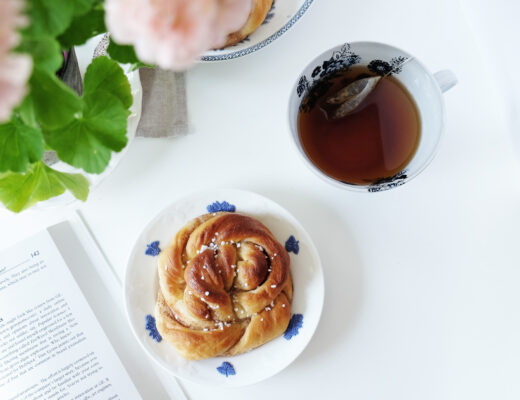Created by Mike & Mollie. Subscribe to our blog.
In our hyper-connected, constantly-on world, it seems like everyone’s talking about simplifying. But simplicity isn’t just about decluttering your home or checking fewer items off your to-do list; it’s a mental shift, a way of understanding life that goes beyond appearances. Simplicity taps into how our brains function, how we make decisions, and how we find clarity and peace when everything feels overwhelming. Let’s explore why simplicity is more than just a nice idea—it’s a crucial part of living well.
1. Your Brain Can Only Handle So Much
Think about it—your brain is like a computer. It can process a lot of things, but it’s got a limit. When you try to do too much or take in too much information, your brain gets bogged down. Psychologists call this “cognitive load,” and it’s why you feel mentally drained when there’s too much going on. Simplicity isn’t just easier—it’s necessary. When we simplify, we free up mental space, allowing us to be more creative, make better decisions, and feel calmer.
2. Too Many Choices Lead to Bad Decisions
Have you ever found yourself standing in front of a menu, unable to decide what to order? That’s decision fatigue in action. The more choices we face throughout the day, the more our brain tires out. After a while, we start making poor decisions or avoid decisions altogether. This is why people like Steve Jobs wore the same outfit every day—they wanted to save their brainpower for the decisions that actually mattered. When you simplify your choices, you reduce mental exhaustion and end up making better decisions.
3. Too Much Choice Isn’t Always a Good Thing
We’ve all been there—standing in an aisle full of options and feeling overwhelmed. It turns out, having too many choices can make us anxious and less satisfied with our decisions. This is known as the paradox of choice. When we have fewer options, we’re more likely to feel content with our choice. So, the next time you’re faced with an overwhelming number of options, remember that sometimes less is more, and keeping things simple can actually make you happier.
4. Your Attention is Precious
In today’s world, distractions are everywhere. From constant notifications to the temptation of social media, it’s easy to lose focus. But here’s the thing—our brains aren’t built to multitask well. Jumping from one thing to another doesn’t make us more productive; it actually makes us more prone to mistakes. By simplifying and cutting out distractions, we give ourselves the gift of focus. We’re more efficient, make fewer errors, and feel more accomplished at the end of the day.
5. Clutter is Stressful
Ever walk into a messy room and instantly feel stressed out? That’s not just in your head. Studies show that cluttered spaces can raise cortisol levels, which is a hormone linked to stress. The clutter you see around you translates into mental clutter, making you feel anxious and out of control. On the flip side, a clean and organized space can help you feel more at peace. It’s not about being a neat freak—it’s about creating an environment that supports your mental well-being.
6. Minimalism is More than a Trend
Minimalism isn’t just about owning less stuff; it’s about focusing on what truly matters. Whether it’s your possessions, your schedule, or your thoughts, stripping away the excess helps you see what’s really important. When we focus on fewer things, we experience them more deeply. It’s why minimalism and mindfulness often go hand in hand—when life isn’t crowded with distractions, we can be fully present and appreciate the richness in what we do have.
7. Habits Simplify Your Life
Habits are powerful because they remove the need for decision-making. When something becomes a habit, you don’t have to think about it anymore—you just do it. Think about your morning routine. If it’s well-established, you probably don’t need to make many decisions when you wake up, which leaves you with more energy for the rest of your day. By forming good habits, we simplify our lives, reduce stress, and create space for more important things.
8. Simplicity Can Spark Creativity
It’s a common misconception that complexity breeds creativity. In reality, simplicity often gives creativity room to flourish. When our minds aren’t cluttered with a thousand little details, we have the space to explore new ideas. Limiting distractions can actually enhance creative thinking because we’re able to focus more deeply on what we’re working on. Some of the greatest minds in history embraced simplicity, knowing it would open up more mental space for innovation.
9. Focus Comes with Simplicity
When life is simple, focus follows. Whether you’re working, reading, or spending time with loved ones, cutting out distractions lets you dive deeper into whatever you’re doing. Research on focus and “flow states” shows that when we’re fully immersed in a task, we’re not only more productive, but we also enjoy what we’re doing more. Simplicity makes this kind of deep engagement possible because it clears away the clutter that competes for our attention.
10. Simplicity Supports Emotional Health
When life is complicated and busy, it’s hard to connect with your emotions. But when you simplify, you create space to reflect, to feel, and to understand what’s really going on inside. Simplifying allows you to get in touch with your true values and focus on what really matters to you. It helps you cultivate a sense of calm and emotional resilience, which in turn leads to greater happiness and fulfillment.
11. Simplicity Encourages Mindfulness
Mindfulness is about being present, and it’s hard to be present when your mind is racing with too many tasks, worries, or distractions. When we simplify, we make room for mindfulness in our daily lives. This could mean slowing down, being more intentional with our time, or even just noticing the small moments that we usually overlook. By focusing on the here and now, we not only reduce stress, but we also increase our ability to experience joy and gratitude.
12. Happiness is Rooted in Simplicity
At the end of the day, happiness doesn’t come from more stuff or busier schedules—it comes from appreciating what we have. Simplicity strips away the excess and brings us back to what truly matters: relationships, experiences, and personal growth. When we stop chasing after more and focus on less, we make space for happiness to thrive. Simplicity reminds us that often, the best things in life are the simplest.




